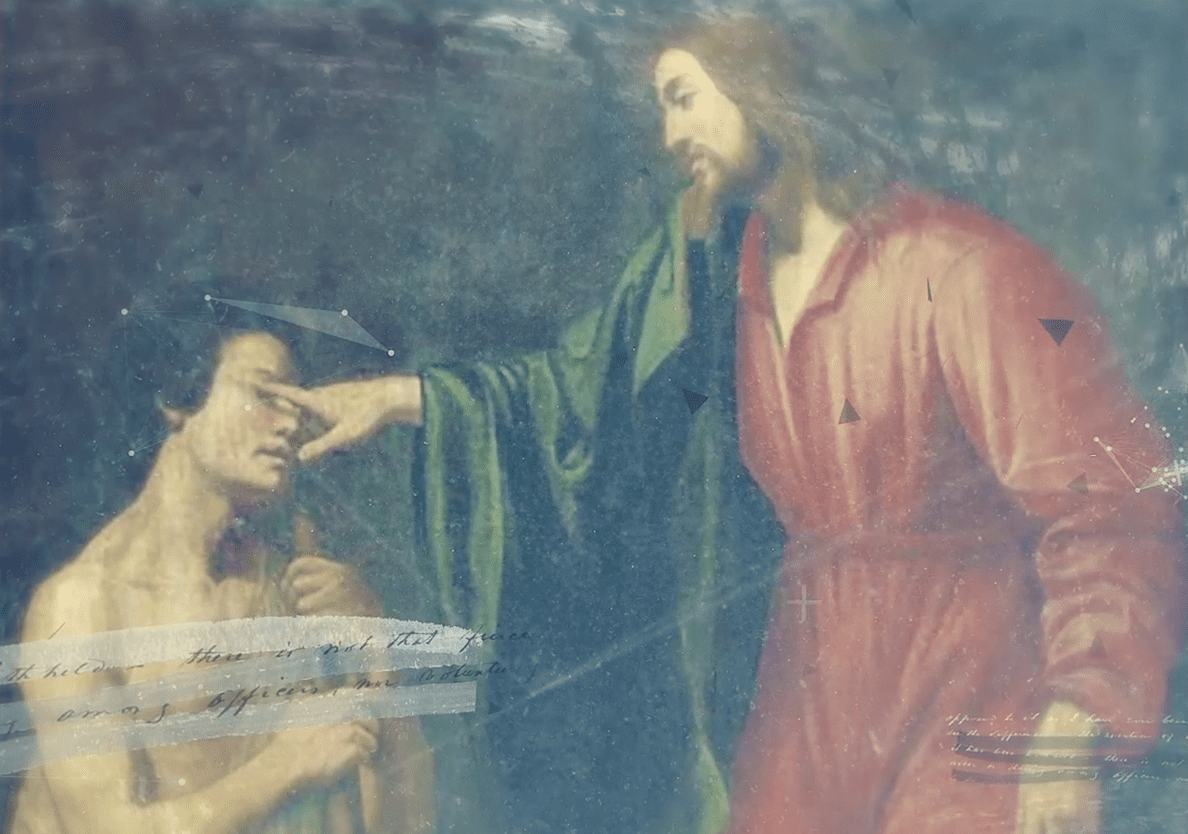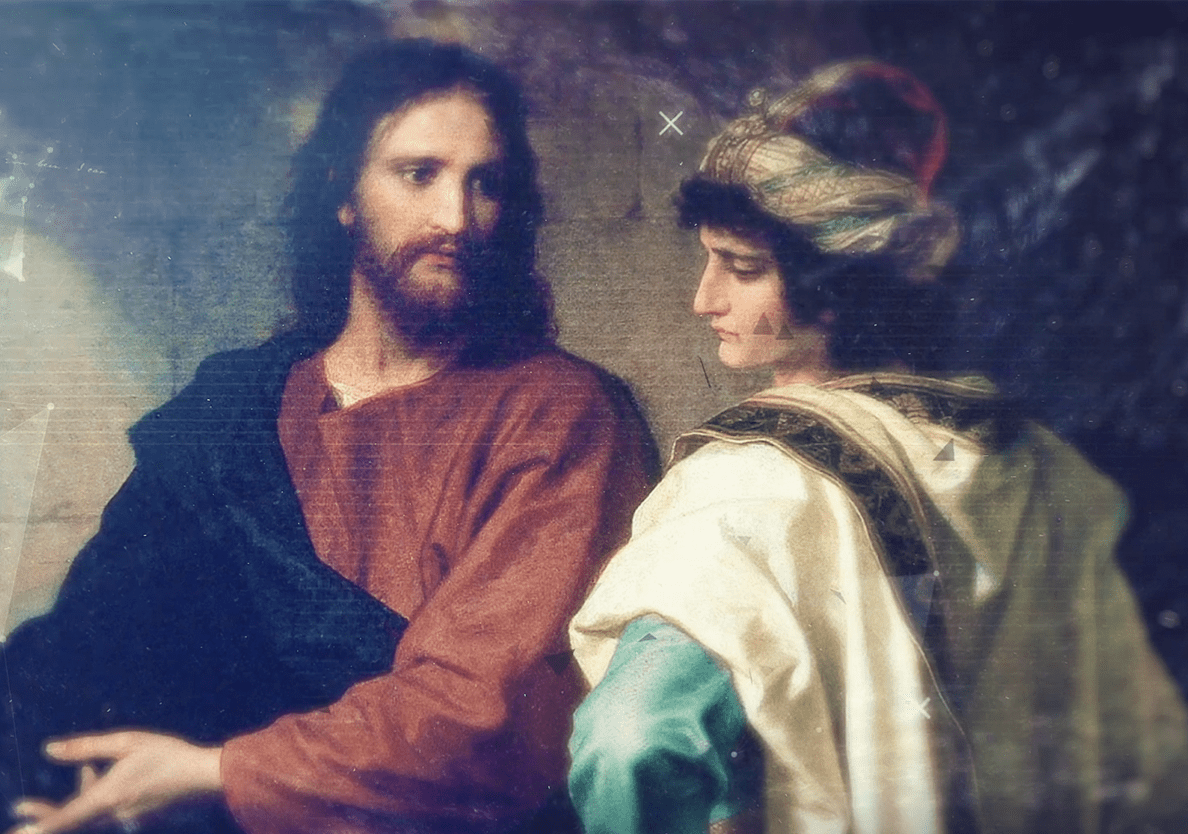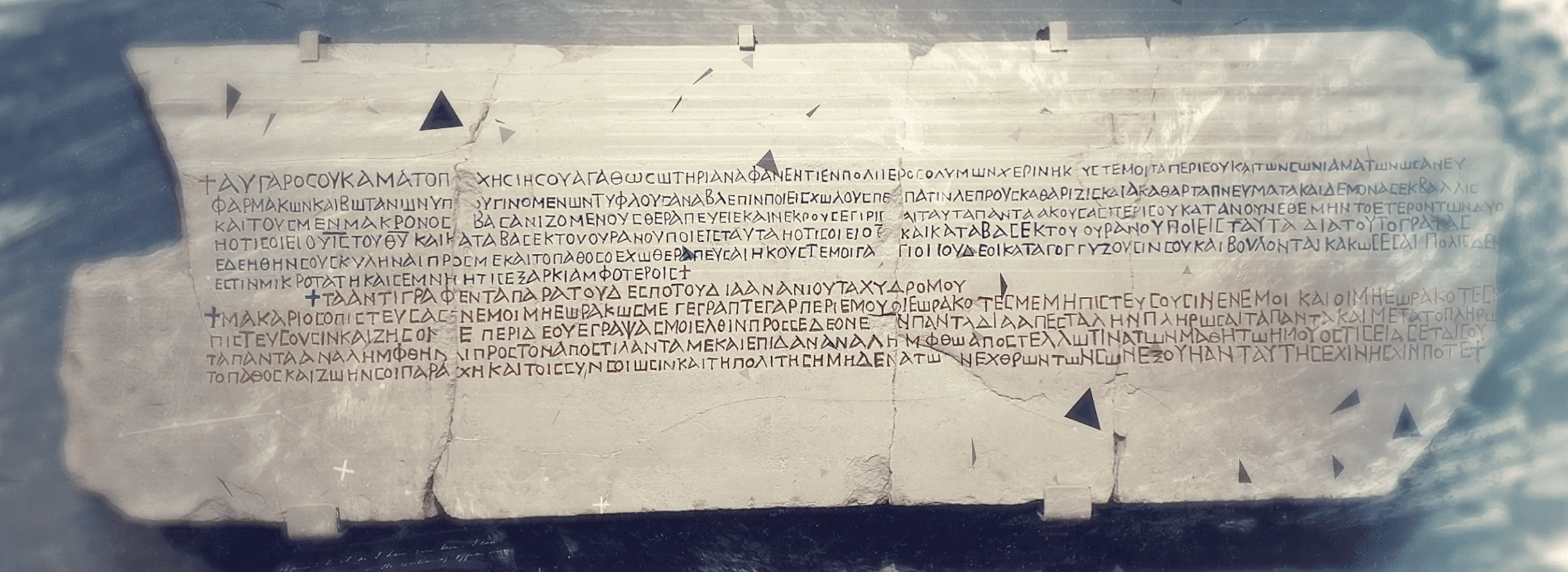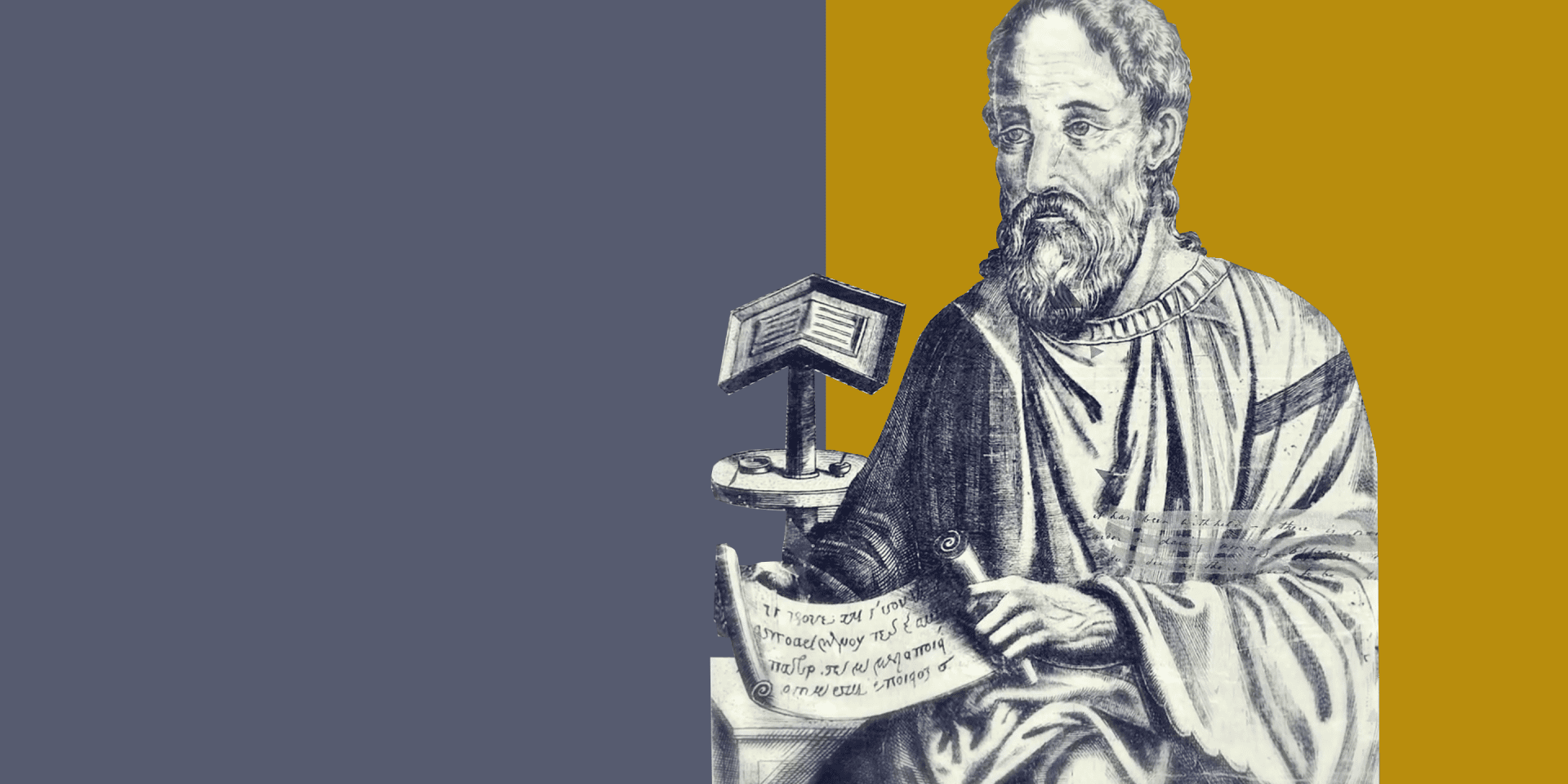Although unbelieving scholars have tried very hard over the years to deny the historical existence of Jesus Christ, including His life, death, and resurrection, this has proven very difficult, if not impossible. One of the main reasons for this is that several historical documents and ancient inscriptions attest to His life and confirm precisely what the Bible says of Him. In fact, early writers (both Christian and non-Christian alike) confirm His existence. Some of these include Cornelius Tacitus, Suetonius, Pliny the Younger, Lucian of Samosata, Josephus, Julius Africanus, Thallus, as well as Eusebius the famed Church historian.
As a matter of fact, Eusebius—in his work The History of the Church—includes a copy of a letter written by King Abgar to Jesus. Abgar was “a distinguished ruler of the nations beyond the Euphrates” and his letter was taken from the archives in Edessa and “translated word for word.”[1] The letter reads: “Abgar Ouchama, toparch, to Jesus the good savior who has appeared in the region of Jerusalem, greetings. I have heard about you and your cures, that you effect them without drugs or herbs. For word has it that you make the blind see, the lame walk, cleanse lepers, and cast out unclean spirits and demons, and that you cure those suffering from great illnesses and raise [people] from the dead. And having heard all of this about you, I can conceive one of two possibilities: either that you are God and having come down from heaven you do all this, or that you who do this are a Son of God. On account of this, therefore, I write, asking that you take the trouble to come to me and cure the ailment I have. I have heard, moreover, that the Jews murmur against you and plan to do you harm. My city is small, yet honorable, and enough for both of us.”[2]
“Therefore I place my hand upon thee in his name. And when he had done it, immediately Abgarus was cured of the disease and of the suffering which he had.”
Eusebius (265-339 AD)
Apparently, this letter was sent to Jesus in Jerusalem via the courier Ananias. What’s more, Jesus sent Abgar a letter in return by way of the same courier. His letter of reply reads: “Blessed are you who have believed in me, without having seen me. For it is written about me that those who have seen me will not believe in me, even in order that those who have not seen me will believe and shall live. But about what you wrote me, that I come to you—it is necessary to fulfill everything for which I was sent here, and after fulfilling it thus to be taken up to the one who sent me. Yet, once I am taken up, I will send one of my disciples to you, in order to cure your ailment and to offer life to you and those with you.”[3]


This exchange between Jesus and Abgar is just one of many pieces of evidence for the life of Jesus Christ. In truth, if these same liberal scholars who deny Jesus’ existence “applied the same arbitrary rejection of historical evidence to other ancient personages, such as Julius Caesar or Alexander the Great, they would be forced to reject all history as myth.”[4]

As for King Abgar, the postscript included with the letters goes on to explain that Jesus remained true to His word: “After Jesus was taken up, Judas, also called Thomas, sent Thaddaeus the apostle, one of the seventy, to him.” Not only did Thaddaeus cure Abgar’s ailment through the power of Jesus but he also preached the Gospel of Christ to him and a great company of those with him. That day many were healed of their sicknesses and added to the kingdom of Heaven. For those interested in further reading, I have included this postscript in its entirety below.
Postscript
“To these letters,” writes Eusebius, “this is added further, in the language of the Syrians:
After the ascension of Jesus, Judas, who was also called Thomas, sent to him Thaddeus, an apostle, one of the Seventy. When he was come he lodged with Tobias, the son of Tobias. When the report of him got abroad, it was told Abgarus that an apostle of Jesus was come, as he had written him. Thaddeus began then in the power of God to heal every disease and infirmity, insomuch that all wondered. And when Abgarus heard of the great and wonderful things which he did and of the cures which he performed, he began to suspect that he was the one of whom Jesus had written him, saying, ‘After I have been taken up I will send to thee one of my disciples who will heal thee.’ Therefore, summoning Tobias, with whom Thaddeus lodged, he said, I have heard that a certain man of power has come and is lodging in thy house. Bring him to me. And Tobias coming to Thaddeus said to him, The ruler Abgarus summoned me and told me to bring thee to him that thou mightest heal him. And Thaddeus said, I will go, for I have been sent to him with power. Tobias therefore arose early on the following day, and taking Thaddeus came to Abgarus. And when he came, the nobles were present and stood about Abgarus. And immediately upon his entrance a great vision appeared to Abgarus in the countenance of the apostle Thaddeus. When Abgarus saw it he prostrated himself before Thaddeus, while all those who stood about were astonished; for they did not see the vision, which appeared to Abgarus alone. He then asked Thaddeus if he were in truth a disciple of Jesus the Son of God, who had said to him, ‘I will send thee one of my disciples, who shall heal thee and give thee life.’ And Thaddeus said, Because thou hast mightily believed in him that sent me, therefore have I been sent unto thee. And still further, if thou believest in him, the petitions of thy heart shall be granted thee as thou believest. And Abgarus said to him, So much have I believed in him that I wished to take an army and destroy those Jews who crucified him, had I not been deterred from it by reason of the dominion of the Romans. And Thaddeus said, Our Lord has fulfilled the will of his Father, and having fulfilled it has been taken up to his Father. And Abgarus said to him, I too have believed in him and in his Father. And Thaddeus said to him, Therefore I place my hand upon thee in his name. And when he had done it, immediately Abgarus was cured of the disease and of the suffering which he had. And Abgarus marvelled, that as he had heard concerning Jesus, so he had received in very deed through his disciple Thaddeus, who healed him without medicines and herbs, and not only him, but also Abdus the son of Abdus, who was afflicted with the gout; for he too came to him and fell at his feet, and having received a benediction by the imposition of his hands, he was healed. The same Thaddeus cured also many other inhabitants of the city, and did wonders and marvelous works, and preached the word of God. And afterward Abgarus said, ‘Thou, O Thaddeus, doest these things with the power of God, and we marvel. But, in addition to these things, I pray thee to inform me in regard to the coming of Jesus, how he was born; and in regard to his power, by what power he performed those deeds of which I have heard.’ And Thaddeus said, ‘Now indeed will I keep silence, since I have been sent to proclaim the word publicly. But tomorrow assemble for me all thy citizens, and I will preach in their presence and sow among them the word of God, concerning the coming of Jesus, how he was born; and concerning his mission, for what purpose he was sent by the Father; and concerning the power of his works, and the mysteries which he proclaimed in the world, and by what power he did these things; and concerning his new preaching, and his abasement and humiliation, and how he humbled himself, and died and debased his divinity and was crucified, and descended into Hades, and burst the bars which from eternity had not been broken, and raised the dead; for he descended alone, but rose with many, and thus ascended to his Father.’ Abgarus therefore commanded the citizens to assemble early in the morning to hear the preaching of Thaddeus, and afterward he ordered gold and silver to be given him. But he refused to take it, saying, ‘If we have forsaken that which was our own, how shall we take that which is another’s?’ These things were done in the three hundred and fortieth year.
I have inserted them here in their proper place, translated from the Syriac literally, and I hope to good purpose.”[5]

Ryan Hembree is a daily co-host, speaker, and writer of Bible Discovery. He also hosts a YouTube channel that shows the unity of the Bible and how science and Scripture fit together. Ryan also has an honorary Masters of Ministry in Creation Science from Phoenix University of Theology.






